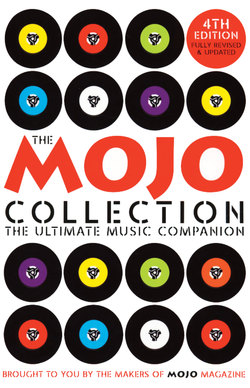Читать книгу The Mojo Collection - Various Mojo Magazine - Страница 11
На сайте Литреса книга снята с продажи.
Ella Fitzgerald Sings The Cole Porter Songbook The great American voice meets the great American composer.
ОглавлениеRecord label: Verve
Produced: Norman Granz
Recorded: Los Angeles; February–March; February 7–9; March 27, 1956
Released: Spring 1956
Chart peaks: None (UK) 15 (US)
Personnel: Ella Fitzgerald (v) with Buddy Bregman’s Orchestra
Track Listing: All Through The Night; Anything Goes; Miss Otis Regrets; Too Darn Hot; In The Still Of The Night; I Get A Kick Out Of You; Do I Love You; Always True To You Darling In My Fashion; Let’s Do It; Just One Of Those Things; Ev’ry Time We Say Goodbye; Begin The Beguine; Get Out Of Town; I Am In Love; From This Moment On; I Love Paris; You Do Something To Me; Ridin’ High; Easy To Love; It’s All Right With Me; Why Can’t You Behave; What Is This Thing Called Love; You’re The Top; Love For Sale; It’s Delovely; Night And Day; Ace In The Hole; So In Love; I’ve Got You Under My Skin; I Concentrate On You; Don’t Fence Me In
Running time: 118.27
Current CD: Verve 5372572 features 35 songs from the sessions over 2 discs
Further listening: The following Songbooks are also indispensable: Sings The Rodgers And Hart Songbook (1956); Duke Ellington Songbook (1957); Irving Berlin Songbook (1958); Gershwin Songbook (1959)
Further reading: Ella Fitzgerald (Stuart Nicholson, 1993); www.ellafitzgerald.com
Download: iTunes
By 1955, Norman Granz, founder of Verve Records, had been trying to acquire Ella Fitzgerald as a recording artist for six years, though she’d been a valuable member of his touring jam-session-for-concertgoers – Jazz At The Philharmonic – since 1949. Her tenure at Decca under the canny A&R aegis of Milt Gabler had seen her juggle successful jukebox pop (My Happiness selling 500,000) with artistic successes (the 1950 and 1954 sessions with pianist Ellis Larkins) and a critical reputation that labelled her the First Lady Of Song (she also topped the Metronome and Downbeat polls for years). But Granz had sustained a campaign of public criticism about some of the fluff she was asked to record. ‘He used to have pieces in Downbeat saying how I was destroying her, giving her bad material,’ remembered Gabler.
By 1953 Granz was Ella’s personal manager and announced a substantial Cole Porter songbook project for her. Recorded quickly with over thirty songs being cut in three sessions, there were ‘hardly any second takes,’ remembers pianist Paul Smith, ‘they were just sort of ground out.’ Clearly Granz was desperate for Ella to be associated with Porter’s urbane blend of gently cynical romance (It’s All Right With Me, Just One Of Those Things), sexy comedy (Too Darn Hot, Anything Goes) and elegant, witty sentiment (Ev’ry Time We Say Goodbye, From This Moment On). Ella’s cool, clear delivery suited the material beautifully, although her personality was hardly the sort to overstate Porter’s arch sophistication (‘She is a simple person,’ judged massive fan and fellow jazz singer Mel Torme, ‘her approach to life is simple’), and the songs arrive in deceptively easygoing tones making for a subtle, rewarding listen.
The following few years saw Ella record songbooks of Rodgers and Hart, Duke Ellington and Irving Berlin, a five-album set of George Gershwin and sets of Kern and Mercer. Though some bemoaned the lack of jazz content in the series – and there remains critical dispute as to which songbook is the most artistically successful – Cole Porter was the most popular. ‘I don’t actually like the man,’ said Mel Torme, ‘but I give Norman Granz great credit for saying to Ella, “You are far more than a cult singer, you should be a national treasure,” and that’s what he did for her.’
